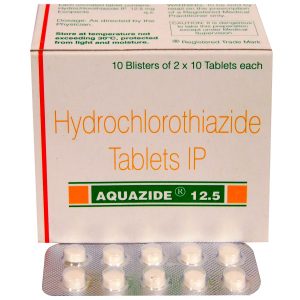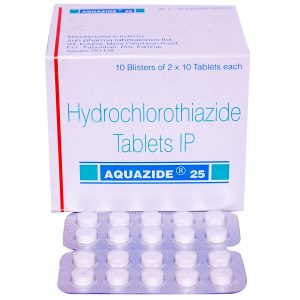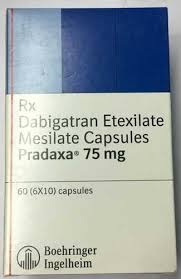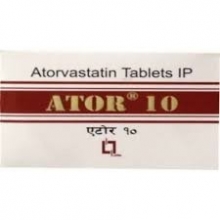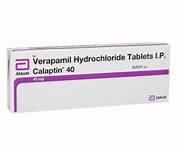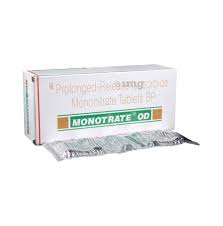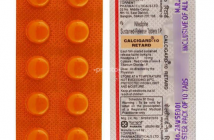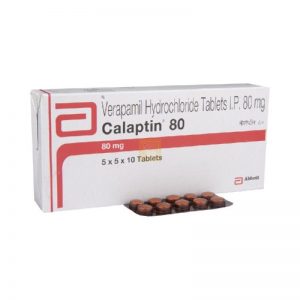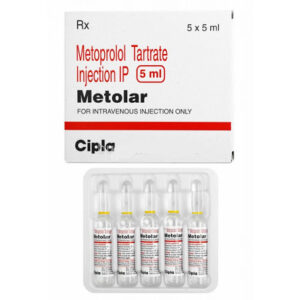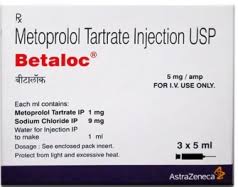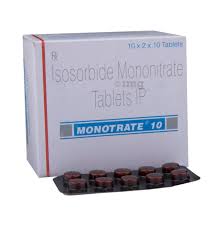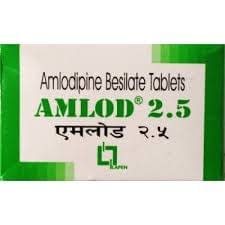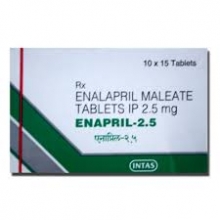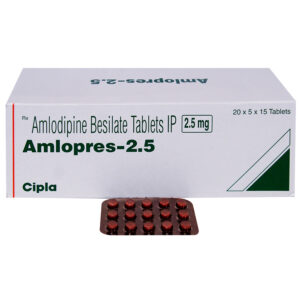-
LOSATRUST 25MG
-
Losatrust 25 MG Tablet is used in the treatment of Hypertension which is an increase in the blood pressure caused by genetic and/or environmental factors.
-
Losatrust 25 MG Tablet is used in the treatment of diabetic nephropathy, a kidney disease which is a complication of diabetes mellitus
-
-
-
-
-
MONOCONTIN 25MG
Monocontin 25mg Tablet is a nitrate. It reduces the workload of the heart. As a result, the heart muscle does not need as much blood and oxygen supply.
₨ 6.90 -
ATOR 10mg
Ator 10 MG Tablet is used to reduce the levels of bad cholesterol and triglycerides in the blood. Along with taking this medicine, a change in diet and regular exercise is recommended. The medicine helps in reducing the long-term cardiovascular risks such as stroke, heart attacks, chest pain etc.
Uses:
Primary Hypercholesterolemia (high levels of cholesterol in the blood)
Ator 10 MG Tablet is used in the lowering of abnormally high levels of lipids in the blood.
Mixed Dyslipidemia
Ator 10 MG Tablet is used to reduce high levels of LDL cholesterol and triglycerides in the blood (main constituents of body fat in humans and other animals, as well as vegetable fat). It also increases the levels of high density cholesterol.
Hypertriglyceridemia
Ator 10 MG Tablet is used in the lowering of triglycerides in the blood.
Homozygous Familial Hypercholesterolemia
Ator 10 MG Tablet is also used in the management of blood cholesterol and lipid levels in cases where the condition is inherited.
Prevention of cardiovascular diseases
Ator 10 MG Tablet is used in the prevention of stroke and heart attack if you are at risk due to conditions like Diabetes, Hypertension, Coronary Heart Disease etc. It is also used in people who don’t have an active disease but are exposed to multiple risk factors like smoking, age, family history of occurrence etc.₨ 10.78 -
-
-
-
WARCO-1MG
- For the treatment of retinal vascular occlusion, pulmonary embolism, cardiomyopathy, atrial fibrillation and flutter, cerebral embolism, transient cerebral ischaemia, arterial embolism and thrombosis.
₨ 15.00 -
-
-
-
-
METOLAR INJECTION N.O.S
Metolar Injection belongs to a group of medicines called beta-blockers. It is used to treat emergency high blood pressure (hypertension), angina (heart-related chest pain), irregular heart rhythms (arrhythmia).
₨ 26.13 -
-
-
WARCO-2MG
- For the treatment of retinal vascular occlusion, pulmonary embolism, cardiomyopathy, atrial fibrillation and flutter, cerebral embolism, transient cerebral ischaemia, arterial embolism and thrombosis.
₨ 30.00 -
-
-
MELOL-25MG
- For the management of acute myocardial infarction, angina pectoris, heart failure and mild to moderate hypertension. May be used to treat supraventricular and tachyarrhythmias and as prophylaxis for migraine headaches.
₨ 32.00 -
ENAPRIL 2.5MG
- It is widely used to treat high blood pressure and heart failure and may be prescribed after a heart attack.
- It also lowers the chances of having a heart attack or stroke.
₨ 34.50 -
ALMOPRES 2.5MG
Amlopres 2.5 Tablet belongs to a class of medicines known as a calcium channel blockers. It is used to treat high blood pressure (hypertension) and prevent angina (heart-related chest pain). It lowers blood pressure and reduces the workload of the heart which helps in preventing heart attacks and strokes.
₨ 34.50 -
-
-
WARCO-3MG
- For the treatment of retinal vascular occlusion, pulmonary embolism, cardiomyopathy, atrial fibrillation and flutter, cerebral embolism, transient cerebral ischaemia, arterial embolism and thrombosis.
₨ 35.00 -
AMLOSUN 2.5mg
Amlodipine
Class: Calcium channel blockerAction:Inhibits movement of calcium ions across cell membrane in systemic and coronary vascular smooth muscle.
Indications: Hypertension; chronic stable angina; vasospastic (Prinzmetal’s or variant) angina.Contraindications: Sick sinus syndrome; second- or third-degree atrioventricular (AV) block, except with a functioning pacemaker.
Route/Dosage:
ADULTS: PO 5 to 10 mg qd. ELDERLY: PO Initially 2.5 mg QD
HEPATIC IMPAIRMENT PO Initially 2.5 mg qd
Interactions:
Beta-blockers: May cause increased adverse cardiac effects as a result of myocardial depression.
Fentanyl: Severe hypotension or increased fluid volume requirements have occurred with similar drug.Lab Test Interferences well documented.
Adverse Reactions
CV: Palpitations; peripheral edema; syncope; tachycardia; bradycardia; arrhythmias; ventricular asystoles. CNS: Headache; dizziness; lightheadedness; fatigue; lethargy; somnolence. DERM: Dermatitis; rash; pruritus; urticaria. GI: Nausea; abdominal discomfort; cramps; dyspepsia. RESP: Shortness of breath; dyspnea; wheezing. OTHER: Flushing; sexual difficulties; muscle cramps, pain or inflammation.
Precautions
Pregnancy: Category C. Lactation: Undetermined. Children: Safety and efficacy not established. CHF: Cautious use is required with this condition. Hepatic impairment: Cautious use is required.
PATIENT CARE CONSIDERATIONS
Administration/Storage
Administer medication in morning.
If patient has difficulty swallowing, crush tablets.
Store in tightly closed container in cool location.
Assessment/InterventionsObtain patient history, including drug history and any known allergies. Note any diabetes, liver disease, cardiac disease or sensitivity to calcium channel blockers.
Monitor BP and pulse before administration.
Review baseline ECG.
Assess for signs of withdrawal syndrome. Abrupt withdrawal may cause increased frequency and duration of angina. Gradual tapering of dose is necessary.
Assess patient for signs of CHF during therapy.
If chest pain occurs, assess for location, intensity, duration, and radiation. Nitroglycerin preparations may be administered in conjunction with this medication.
If drug is used with other calcium channel blockers or beta-blockers, observe for intensification of side effects.
Withhold medication and notify physician if any of the following signs and symptoms occur: Sudden severe dyspnea; edema of hands and feet; changes in ECG (widened QRS, prolonged QT segments); pulse falls below 50 bpm.
If the patient experiences chest pain not relieved by medication, continue medication and notify physician.
OVERDOSAGE: SIGNS & SYMPTOMS Nausea, weakness, dizziness, drowsiness, confusion, slurred speech, hypotension, bradycardia, second- or third-degree AV blockPatient/Family Education
Teach patient how to monitor pulse before taking medication. Tell patient not to take medication if pulse if < 50 bpm and to call physician.
Explain to patient how to monitor BP daily.
Instruct patient not to stop taking this medication suddenly because doing so can cause chest pain and MI.
Teach patient importance of good oral hygiene and frequent visits to dentist while taking medication.
Inform patient that frequent follow-up appointments with physician are important to adjust medication dosage.
Caution patient to avoid sudden position changes to prevent orthostatic hypotension.
Instruct patient to avoid intake of alcoholic beverages or other CNS depressants.
Advise patient that drug may cause drowsiness, and to use caution while driving or performing other tasks requiring mental alertness.
Instruct patient not to take otc medications without consulting physician.₨ 36.00 -


